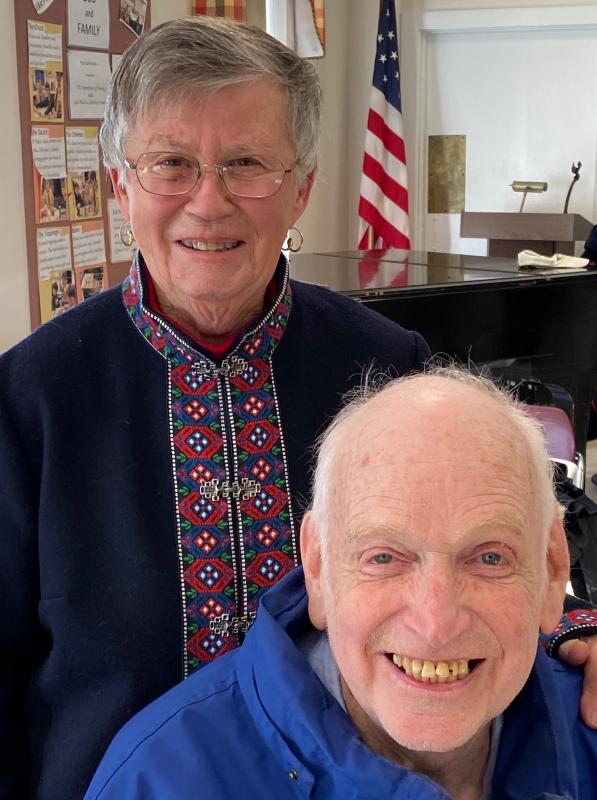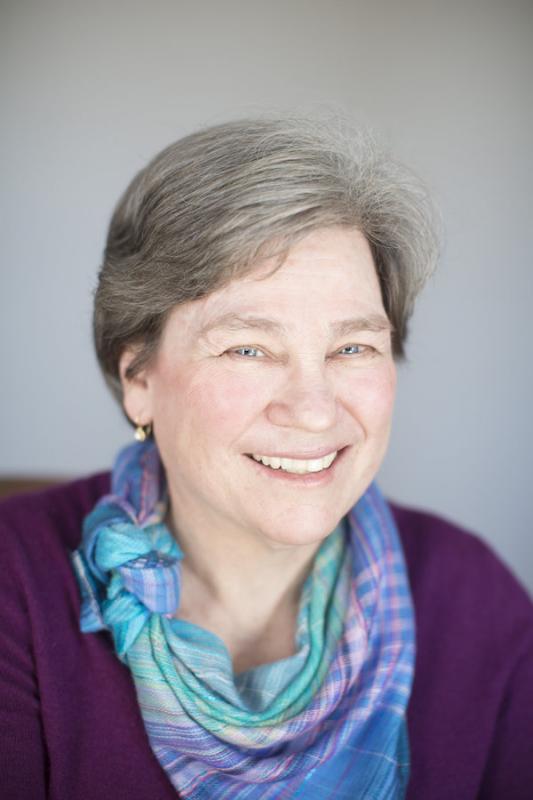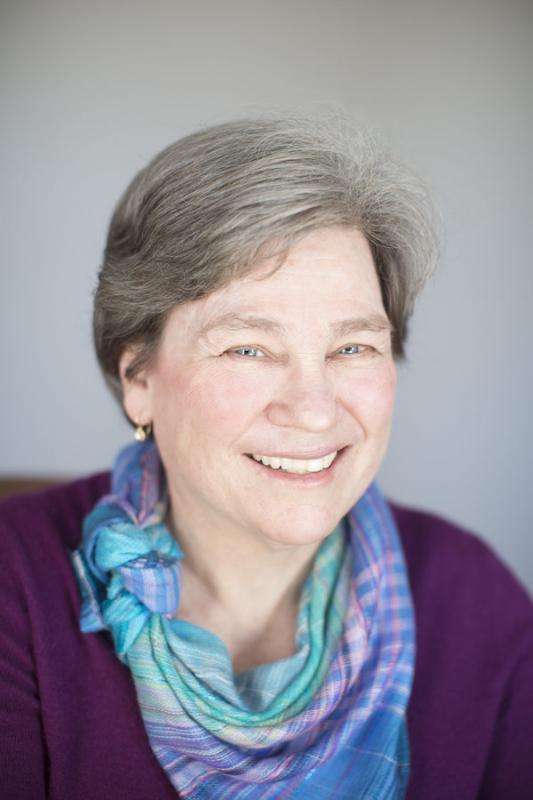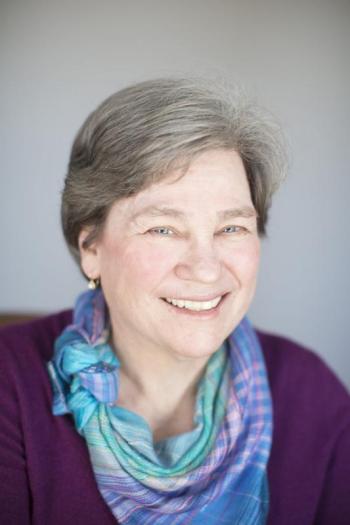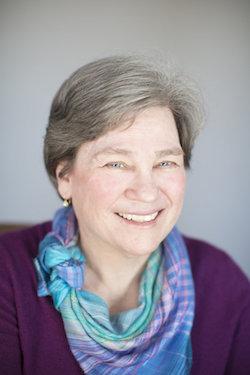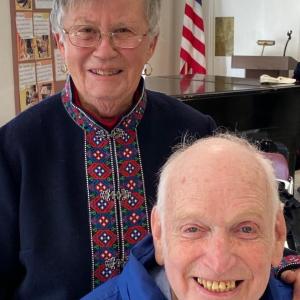Making Connections Despite Differences
Most Sunday mornings, Elaine Davis calls her friend Louis, who lives down the street, to ask if he’d like a ride to the Congregational Church in Camden. If he does, she’ll drive along to his Coastal Opportunities apartment to pick him up. If there’s time to spare before church, they’ll cruise past his childhood home and reminisce a little.
“Louis and I both grew up in Camden, so we have known each other all our lives,” Davis recalls. “I would see him at basketball games and other sporting events.”
Davis lives near the Coastal Opportunities Corcoran Center, where Louis participates in recreational and service activities, so she frequently sees him and his companions in the neighborhood. Over the years, she has been a steady friend to Louis, always willing to help.
“Louis looks after me, too,” Elaine says. “He brings me gifts, maybe a craft project or a flower or a picture he’s colored. And I have given him plants for his apartment. Little things. You don’t need to do much to make someone happy.”
Relationships with Coastal Opportunities clients bring happiness to many people – not just to lifelong friends. When our family moved to Camden 25 years ago, I began seeing people with intellectual disabilities around town, and I noticed how the faces of their neighbors, shopkeepers, restaurant owners, churchgoers, and folks at the Y would light up when greeting them.
I also witnessed a lot of generosity.
Paul Prescott, who owned the Village Restaurant on Main Street for many years, made sure Louis and his friends from the Coastal Opportunities apartments on Elm Street got a good Sunday lunch at a modest price. Nowadays, the group heads down to Marriners Restaurant after church every week.
“We’ve built a fun, special relationship with Louis, Melvin, Scott, and Linda, and we love seeing them each week,” says Becki Gabriele, who’s in charge at Marriners on Sundays. “They are so overflowing with joy that everyone else – our regulars and even people who don’t know them – receive the light and energy they bring into the restaurant.”
Gabriele values the way many people in the Midcoast reach out to individuals who are different: “I am always thankful to come home after I have been away because I feel like we do care about each other here, We are learning how to walk alongside one another and embrace each other, as a community. “
It took me longer than I care to admit to start that walk myself. For many years, I was not sure how to connect with individuals who do not communicate in the same way I do, whose verbal skills do not match mine.
I asked Coastal Opportunities Community Services Coordinator Kristin King how those with similar doubts can reach out. She said a good starting point is to be in the same place with those of different abilities.
“Just participating in activities with them allows you to see that in many ways they are just like everyone else,” King said. “When we are out into the community, maybe just visiting a park to hang out or hear a musical group, we like people to join us,” King added. “We also include the community in our events, such as the Special Olympics, because we want other people to get to know our participants. And we welcome invitations to integrated events where our group can focus on practicing interpersonal skills and be with all sorts of people.”
If I’m near your group, how can I start a conversation with someone?
“People are sometimes timid or uncomfortable, but it’s important not to be afraid, and to realize that individuals with intellectual disabilities form strong interpersonal connections just like anybody else. Speak directly to them, and don’t change your style of communication. Treat them as adults and avoid baby language or anything that’s going to make them feel less of a person. Ask them about themselves, just as you would with anyone else. Most of our folks can understand what you are saying, and they appreciate being treated as normal members of the community.”
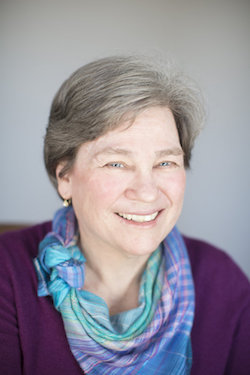
in Camden since 1994.
What if the person I am talking to doesn’t respond, or I do not understand their response?
“The individual’s level of disability will have an impact on their conversational skills. For many people, it’s easier to understand what you are saying but more difficult to respond. Speak clearly and allow time for them to process what you have said. If they reply, but you don’t understand them, you can often get the gist of their meaning by being sensitive to their tone of voice, body language, and nonverbal cues. If the person has a care professional with them, feel free to ask for advice about helpful ways to communicate.”
Is there value in reaching out even if we can’t have a dialog?
“Absolutely! We all want to feel a sense of importance and belonging. Simply asking, ‘How are you?’ shows an interest in that individual and gives them a sense of belonging. I know that when somebody asks me how I’m doing, I feel recognized and important in the moment.”
King added that an easy way to connect with those who have intellectual disabilities is to participate in integrated art and recreation programs that bring Coastal Opportunities clients together with other community members to play tennis, do yoga, do service projects, and create art. I will be writing soon about these shared experiences, which are breaking down barriers every day, turning strangers into friends.
Event Date
Address
United States

